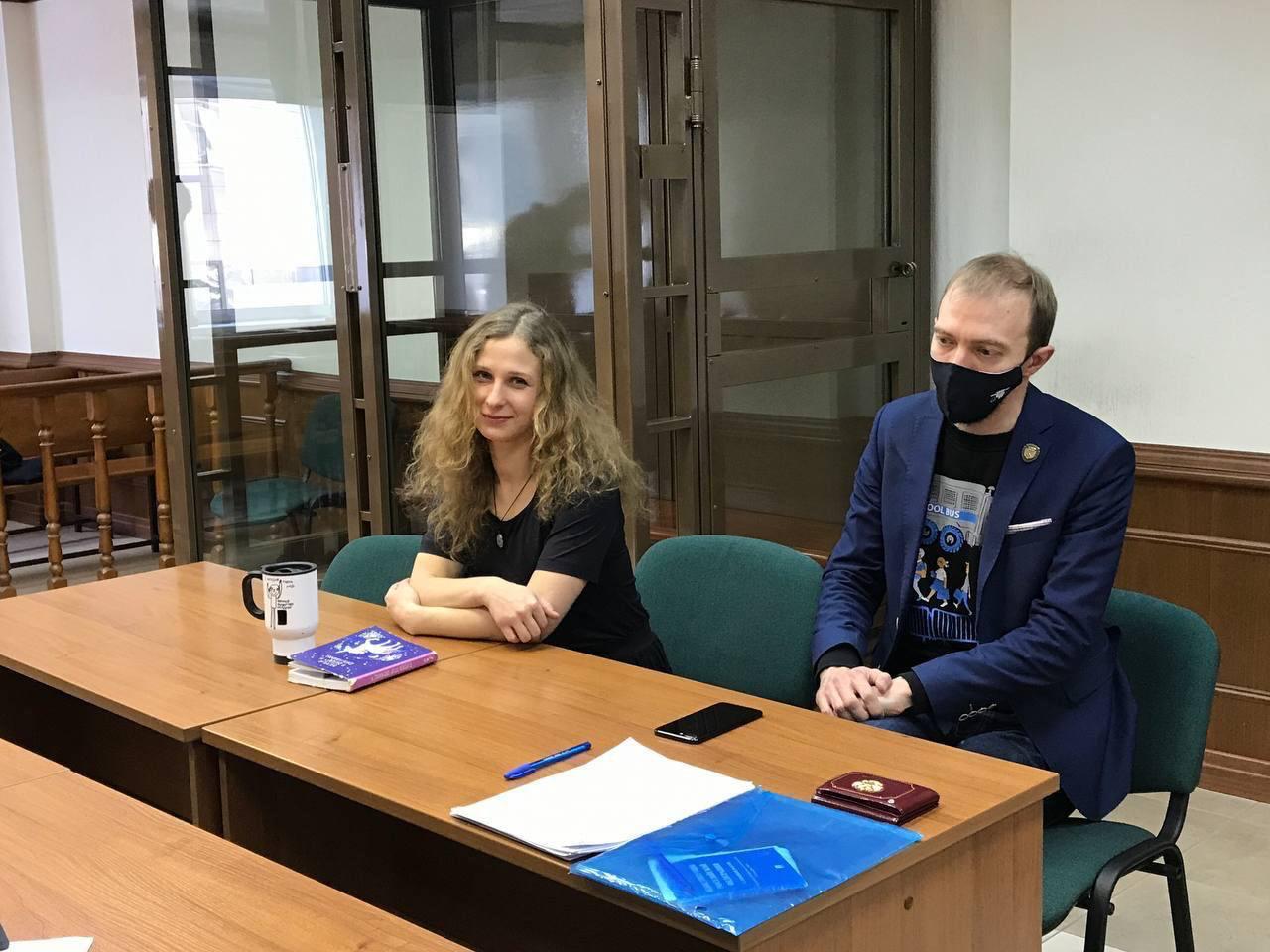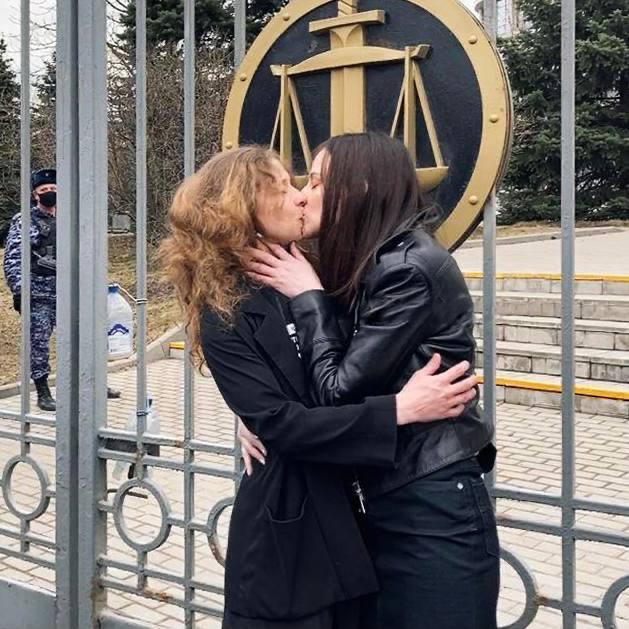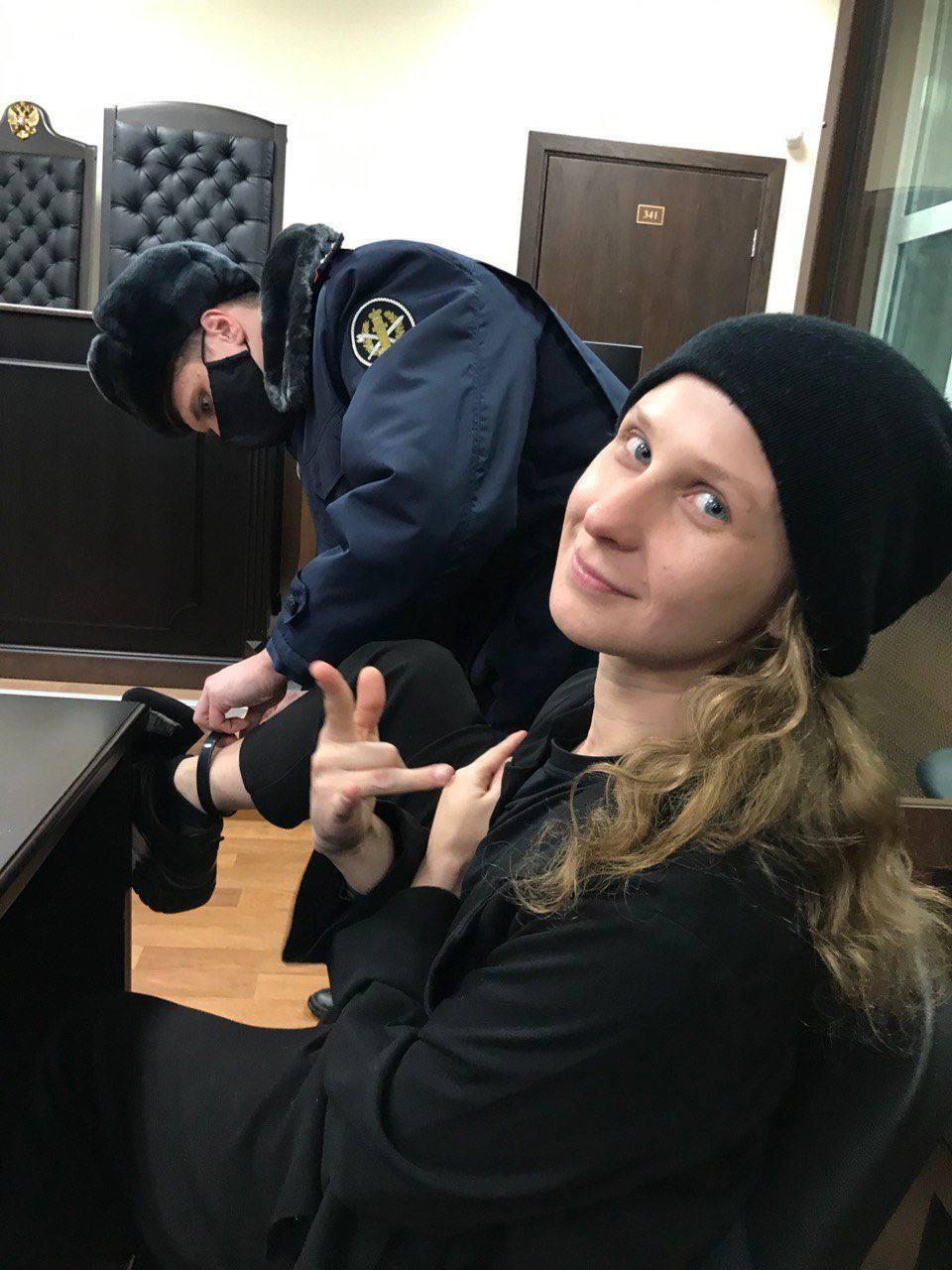‘The Russia I know is in jail’: Pussy Riot’s Maria Alyokhina speaks out from house arrest
The long-time opponent of Vladimir Putin tells Oliver Carroll about her latest struggles against the Russian authorities


Maria Alyokhina says she knows a thing or two about incarceration.
As one of two members of the Pussy Riot collective jailed in 2012 for an anti-Putin “punk prayer”, Alyokhina spent a total of almost two years in Russia’s tough prison system.
And when asked to describe what is happening in Russia, the words come quickly enough.
“The Russia I know is in jail, impotent against lies, propaganda, robbery and assassinations,” she says.
“We are up s**t creek, but that doesn’t mean we are losing heart.”
Alyokhina, 32, is today once again locked in a battle with Russian justice. She is one of 10 defendants in the latest dubious case being brought against members of the opposition.
The group, mostly close associates of jailed opposition leader Alexei Navalny, is accused of “inciting” people to break Covid restrictions. Their real “crime” is appears to be asking them to protest. All 10 were placed under house arrest at the end of January.
This week, the courts decided to leave a further arbitrary stamp on the case that has become known as Russia’s “Sanitary Affair”.
On Wednesday, a judge freed four of the defendants from two and a half months of house arrest. But the following day, another judge left arrest orders in place until June for Alyokhina and the rest. The logic – if there is any – seems to be a hopeful attempt at sowing discord among the group of Putin critics.
In any normal news cycle, Alyokhina’s continued arbitrary arrest would make international headlines.
But not in the Russia of 2021, metamorphosed as it is by Navalny’s Novichok poisoning, his subsequent return, his jailing, and de facto “torture” in the prison system. That sequence of events has set a new bar, and anything below it barely registers. The state appears to be taking advantage of that.

Alyokhina is speaking to The Independent via written questions sent through lawyers. Under the precise terms of her house arrest, she is prohibited from leaving her home, even for food or exercise; to use the internet or mobile phone; or to socialise with friends. She wears an electronic bracelet on her leg, which will activate if she leaves the confines of her Moscow flat. Any infringement could theoretically serve as a ticket back to a corrective prison colony.
“House arrest is when the state tries to turn your home into a jail,” she says. “And when you fight back as you can.”
The Pussy Riot activist tells The Independent she’s doing her best to “keep things weird”, but life is inevitably a shadow of its previous self. She’s doing a lot of press ups, she says. She’s writing a new book, the follow up to her 2017 prison memoir “Riot Days”.
And she’s reading a lot too. The book on the go at the moment is Richard Stites’ Women’s Liberation in Russia, a 1977 study of the role of women in revolutions. “It’s fabulous,” she says.
The most hurtful restrictions affect Alyokhina’s family life. Things are already complicated on that front. Her son’s childhood has been formed by her arrests and prison sentences, she says. He was just four when she was sent away to a prison colony, and used to tell his primary school friends about how his mummy was in jail for “singing a song against Putin”.
The court order has also meant separation from Alyokhina’s long-time partner, the activist and municipal deputy Lucy Shteyn, who is also a defendant in the same trumped up case. “We saw each other at the appeal and hugged each other so hard,” Alyokhina says. The state investigator was less impressed, she recalls, running up to the women and shouting “separate them! Stand between them!”
Alyokhina dismisses the investigator’s reaction as the “homophobia” of a “bald, unhappy man”.
But she has no doubt the double prosecution was a deliberate attempt by the state to separate the women. What the Kremlin is doing to families across the country is one of the “worst crimes imaginable,” she says. She felt for Yulia Navalnaya now, with her husband in jail, in bad health and on hunger strike.
“I can only imagine what she is thinking now, or what his kids are thinking,” she says.
Alyokhina says she has “tremendous respect” for Navalny, who, she says, bravely decided to return to Russia after being “practically murdered”.
But his “shocking” poisoning wasn’t the fork in the road for her as it was for others. That came six years ago, with the assassination of Boris Nemtsov at the walls of the Kremlin: “I knew then that people were ready not only to jail, but to murder too.”

Navalny’s poisoning and jailing have certainly provoked the largest uptick in Russian protest sentiment since 2011-12. But it is fair to say opposition forces have yet to muster numbers capable of causing the Kremlin real worry. A major reason for that is fear of repression; political apathy also plays a role.
Alyokhina insists her fellow countrymen won’t be able to stay quiet forever. “There’s a joke going round at the moment that goes like this: ‘Daddy, which concentration camp are they sending us to?’ ‘I don’t know, son, I’m not interested in politics.’” When people realise the state’s long arms can reach them too, they will react, she claims.
Equally, the activist says she is not worried by the opposition’s lack of formal leverage over Russian politics.
“They haven’t yet introduced forced lobotomies,” she says. “Our main levers – brains – are still in place.”
Subscribe to Independent Premium to bookmark this article
Want to bookmark your favourite articles and stories to read or reference later? Start your Independent Premium subscription today.
Join our commenting forum
Join thought-provoking conversations, follow other Independent readers and see their replies
Comments